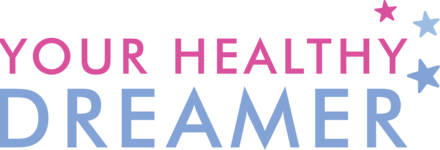The Four Month Sleep Transition
Four months is an exciting age for our rapidly growing babies! While four months can get a bad reputation with a lot of emphasis on the “four month sleep regression”, I prefer to look at the bright side because it’s very VERY bright.
Some babies do experience increased sleep disruptions around this time that can look like more difficulty falling asleep, more night wakings, and poor naps. However, these temporary disruptions are actually a reflection of healthy neurological development.
All sleep milestones are based on your baby’s biological age. This is their age measured from their estimated due date, so it’s important to keep this in mind if your baby was born more than a week earlier or later than their original due date.
If your baby is not yet four months, or 17 weeks old (based on their biological age), read about how to facilitate healthy sleep habits that are biologically appropriate for the phase your baby is in now: Newborn Sleep: 2-4 Months.
The “four month sleep regression” is really due to healthy and expected neurological development that reflects new potential in regards to sleep! Sleep finally has the potential to improve significantly!
The four month sleep transition is the time to realistically work toward independent sleep skills, sleeping through the night, and a predictable nap schedule. If you are a family who prioritizes sleep, this is a very exciting time! The disruptions your baby is experiencing now are temporary, and you finally have the power to help your baby learn to master healthy sleep habits.
(If working toward independent sleep is not a goal for you just yet, that’s OK too. It’s never too late to teach your baby or child healthy independent sleep habits.)
Here are 5 Tips to Help Your Baby Master Their New Potential for Healthy Sleep:
ONE.
Aim to offer a consistent safe sleep space for all night and day sleep. Following www.AAP.com safe sleep guidelines, I recommend offering all sleep in a bare crib or pack n play with a properly fitted sheet.
While offering sleep on the go is necessary for life sometimes, it’s helpful to prioritize offering sleep in the same safe sleep space as often as you are able in order to facilitate healthy sleep and the emergence of lasting healthy sleep habits.
TWO.
Ensure that your baby’s safe sleep space is as conducive to healthy sleep as possible. This means that your baby’s crib or packnplay is located in a room that is safe, dark, quiet, boring, and cool. This one aspect of facilitating healthy sleep is a significant one so don’t skimp on the use of your blackout products!
THREE.
Firm up on the predictability and consistency of your bedtime and naptime routines. If you haven’t been using predictable pre-sleep routines yet, it’s time to start! The purpose is simply to show your sweet baby what to expect by doing the same few steps in the same exact order before every sleep period.
Your bedtime routine is likely to be a bit longer, between 10-15 minutes, while your naptime routines should be an abbreviated version of your bedtime routine. When you are very consistent, your baby learns what to expect from you, and this one thing significantly eases the transition between wake time/play time to sleep time.
FOUR.
Re-evaluate your baby’s sleep schedule. Sleep may have been largely inconsistent up until now, and that’s very normal and expected. However, at four months of age, your baby has a fully developed natural body clock, or circadian rhythm. This means that their body finally has an internal clock that is going to make falling into a deep and restorative sleep much easier if they are offered sleep at the right times. While this will vary from baby to baby, there are some general guidelines to consider.
Bedtime:
It’s time for bedtime to shift earlier into the evening if it hasn’t already. Babies thrive on an early to bed and early to rise schedule. While adults may be categorized as either morning larks or night owls, babies and young children always prefer an earlier schedule. Your baby is going to be ready to sleep for the night somewhere between 6-8pm.
Naps:
Babies between the ages of four through eight months will typically benefit from a Three Nap Schedule. The first nap should fall somewhere between 8:30 and 9am. The second nap should fall somewhere between 12 and 1pm. The third nap should fall somewhere close to 3 or 3:30pm. While some babies will accept this timing easier than others, it’s a helpful guide to work toward as your baby adjusts to their newly functioning circadian rhythm.
FIVE.
Consider teaching independent sleep skills. Many babies will have a growing awareness at this age along with significant changes in how their brains process sleep. This will make sleep much more difficult and interrupted if they are not familiar with how to fall asleep independently.
Teaching independent sleep skills can look differently depending on your parenting style, your child’s temperament, your family’s sleep preferences, and how involved you choose to be during the process. It really doesn’t matter exactly how you choose to teach independent sleep skills. For many babies, it is simply helpful that you begin or continue to offer practice so that they have the opportunity to learn and ultimately master the skill that will lead to lasting healthy sleep habits.
Four months is a very exciting age because it finally offers so much potential in regards to improved sleep! Your baby is biologically ready for longer and more predictable day and night sleep. After reading this blog, you also have the tools to make this transition as smooth and promising as possible.
If the four month sleep transition has you eager to sleep through the night again and you are ready to work with one on one with me to get there as quickly and kindly as possible, schedule a free 15 minute discovery call!

